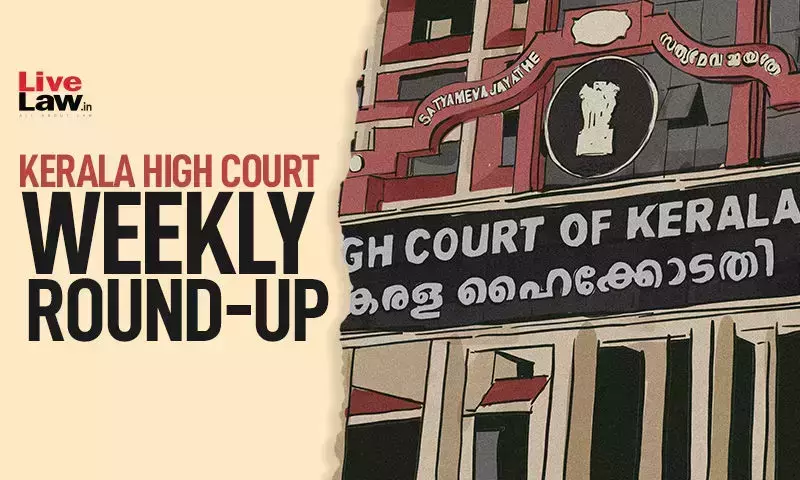Kerala High Court Weekly Round-Up: September 04 - September 10, 2023
Navya Benny
11 Sept 2023 11:00 AM IST

Next Story
11 Sept 2023 11:00 AM IST
Nominal Index [Citations: 2023 LiveLaw (Ker) 447-462]Vijay Philip v. Narcotic Control Bureau 2023 LiveLaw (Ker) 447Hindustan Organic Chemicals Ltd. V Lissiama James 2023 LiveLaw (Ker) 448Kerala State Horticultural Products Development Corporation Limited V Sunil Kumar S 2023 LiveLaw (Ker) 449Umesh v. State of Kerala 2023 LiveLaw (Ker) 450M/S Anantham Online Pvt. Ltd. v. Senior...
